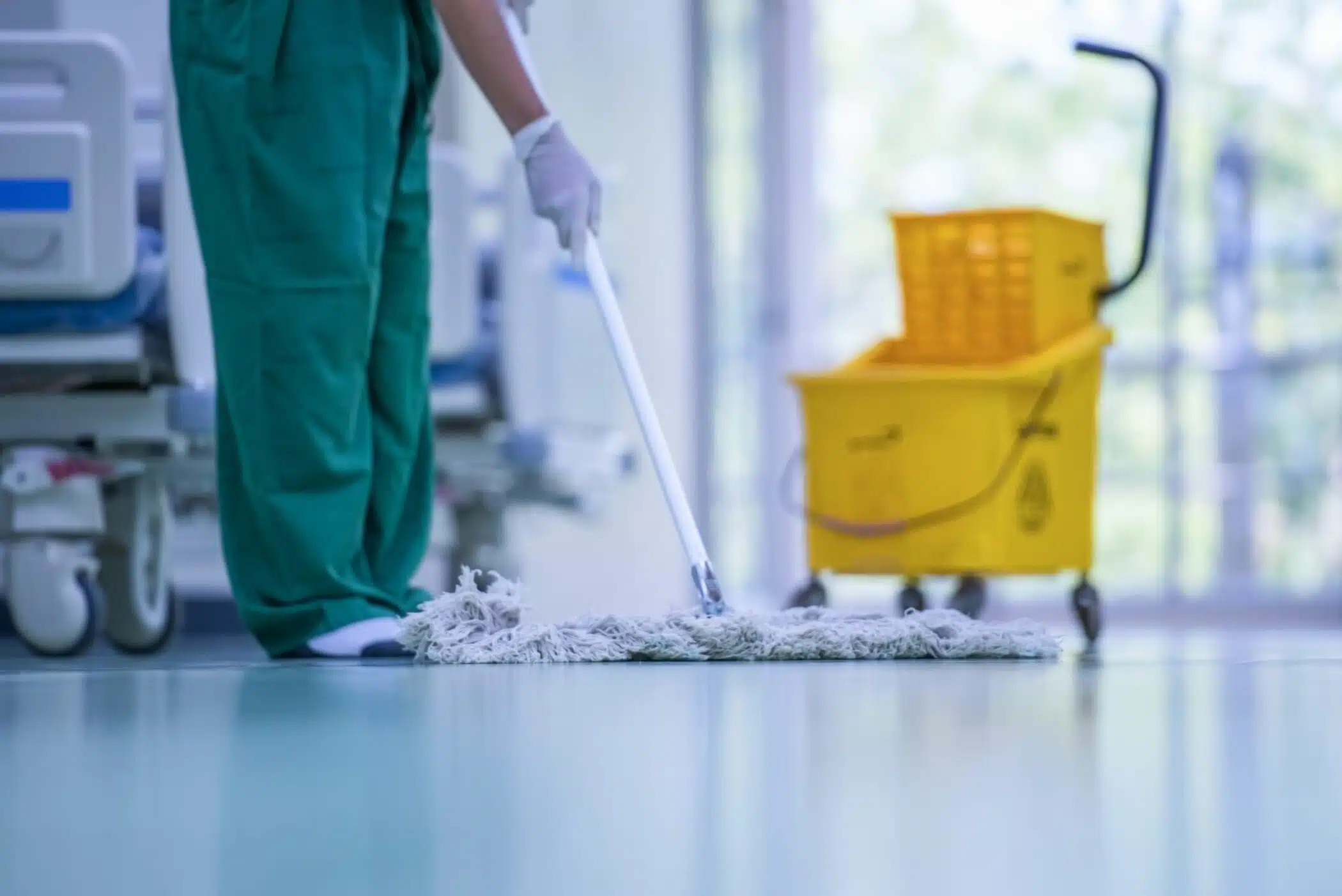Why Hospital Cleaners Are Crucial to Healthcare
Medical facilities, such as hospitals, clinics, and care homes, are high-risk zones for infections. Without proper cleaning and disinfection, patients, staff, and visitors could be exposed to healthcare-associated infections (HAIs). According to the Centers for Disease Control and Prevention (CDC), HAIs affect about 1 in 31 hospital patients daily in the U.S. alone. Hospital cleaners work tirelessly to minimize these risks, ensuring a clean and safe environment for everyone.
Their responsibilities extend beyond cleaning. They help maintain operational efficiency by organizing supplies, managing waste, and supporting patient comfort. Without their efforts, the healthcare system would struggle to function effectively.
Core Responsibilities of Hospital Cleaners
-
Surface and Equipment Cleaning Hospital cleaners disinfect high-touch surfaces such as door handles, medical equipment, and patient beds. This reduces the risk of cross-contamination and ensures that medical procedures are carried out in a sterile environment.
-
Floor Maintenance Cleaners often use specialized equipment to clean and disinfect floors in high-traffic areas such as operating rooms, emergency wards, and intensive care units.
-
Waste Management Disposing of medical waste, including biohazard material, is a crucial aspect of the job. Cleaners follow stringent protocols to ensure that hazardous waste is handled safely and disposed of appropriately.
-
Restocking Supplies Many hospital cleaners are responsible for restocking essential items, such as gloves, masks, and cleaning agents. This ensures that healthcare workers have uninterrupted access to the tools they need.
-
Patient Support In some cases, cleaners assist in delivering meals, water, and other necessities to patients. Their interactions with patients can also bring a personal touch, contributing to patient well-being.
How to Become a Hospital Cleaner
1. Education Requirements
Most hospital cleaner jobs require a high school diploma or equivalent. Some employers may prefer candidates with basic knowledge of hygiene and sanitation standards.
2. On-the-Job Training
Hospitals typically provide on-the-job training to new hires. This includes learning about infection control protocols, the proper use of cleaning agents, and handling specialized equipment.
3. Certifications
While not always mandatory, some certifications can enhance your employability. For example:
-
- Infection Control Training: Helps cleaners understand how to prevent the spread of diseases.
- Hazardous Waste Management Certification: Focuses on safe handling and disposal of biohazardous materials.
4. Soft Skills
Employers value soft skills such as attention to detail, time management, and the ability to work independently or as part of a team.
Job Flexibility and Benefits
-
Morning, Evening, or Overnight Shifts: Many hospitals operate 24/7, offering cleaners the opportunity to choose shifts that suit their lifestyle.
-
Part-Time and Full-Time Roles: Both options are commonly available, catering to diverse employment needs.
-
Accommodation: Some hospitals, especially in rural or remote areas, provide accommodation for their staff.
-
Basic Insurance and Paid Vacation: Many employers offer health insurance and paid leave, ensuring financial stability and work-life balance.
The Demand for Hospital Cleaners
A Day in the Life of a Hospital Cleaner
To better understand the scope of their work, here’s a breakdown of how a typical hospital cleaner might allocate their time during an eight-hour shift:
|
Task
|
Percentage of Time
|
|
Surface and Equipment Cleaning
|
40%
|
|
Waste Management
|
20%
|
|
Floor Disinfection
|
15%
|
|
Restocking Supplies
|
10%
|
|
Patient Support Activities
|
15%
|
Challenges and Rewards
-
Physical Demands Cleaning tasks often involve heavy lifting, long hours on your feet, and repetitive movements.
-
Exposure to Health Risks Cleaners work in environments where they may come into contact with infectious diseases or hazardous materials. Proper training and protective equipment are critical.
-
Emotional Impact Being in constant proximity to patients who are sick or in critical condition can be emotionally taxing.
Career Growth Opportunities
-
Sanitation Supervisors: Overseeing larger teams and ensuring compliance with cleaning protocols.
-
Healthcare Support Workers: Assisting medical staff in basic patient care tasks.
-
Specialized Cleaning Roles: Focusing on areas like infection control or hazardous waste management.

